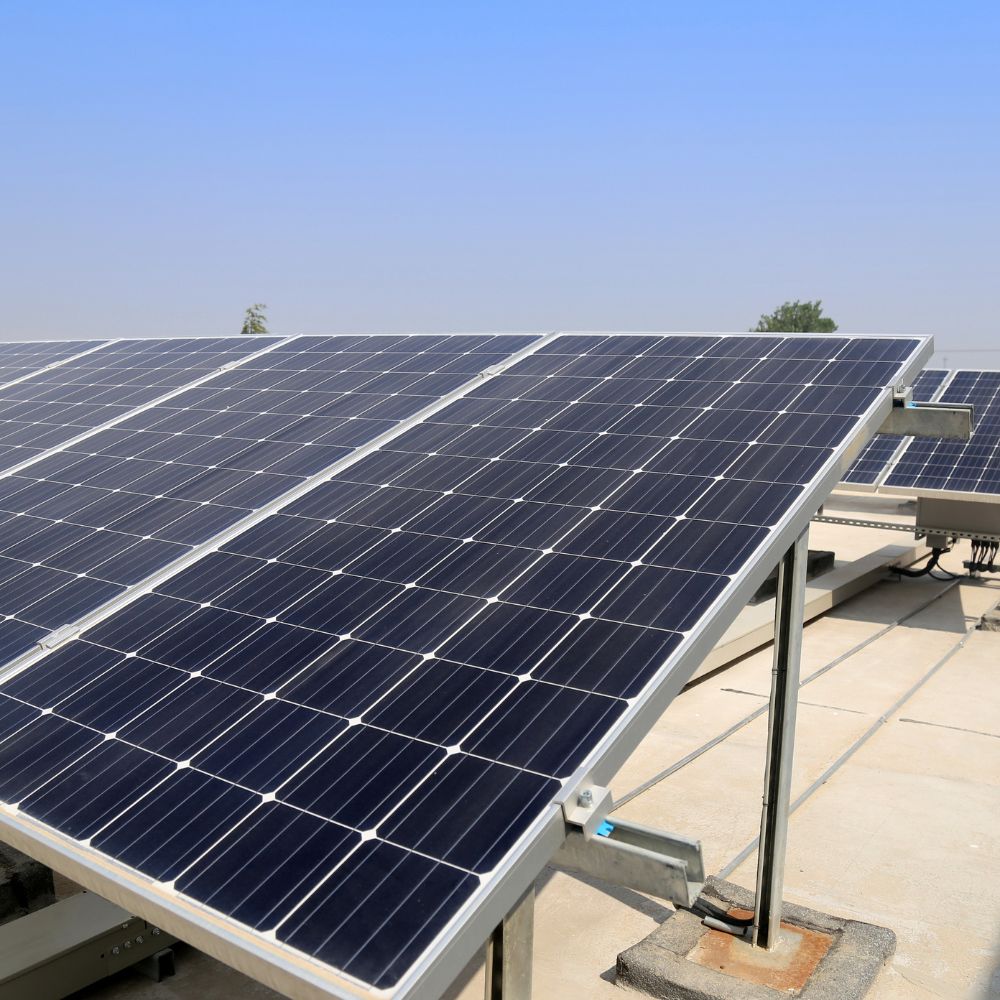The role of solar energy in meeting sustainability goals for manufacturing operations
2023-07-11 16:02:43

As the world grapples with the urgent need to address climate change and reduce greenhouse gas emissions, industries are increasingly focusing on sustainable practices. Manufacturing operations, in particular, have a significant impact on the environment due to their energy-intensive nature. To mitigate these effects, an increasing number of manufacturers are turning to solar energy as a key solution. Solar power not only offers a clean and renewable energy source but also provides numerous benefits in achieving sustainability goals for manufacturing operations.
In this blog post, we will explore the role of solar energy in meeting sustainability goals for manufacturing operations and its potential to revolutionise the industry.
Solar Energy: A Sustainable Power Source
Solar energy is derived from the sun's radiation, which can be harnessed and converted into electricity using photovoltaic (PV) panels or concentrated solar power (CSP) systems. This renewable energy source offers several advantages over traditional fossil fuel-based power generation methods:
- Carbon Emissions Reduction: Manufacturing processes often rely on fossil fuels, contributing to greenhouse gas emissions. Solar energy, on the other hand, produces electricity without releasing harmful pollutants, helping manufacturing operations reduce their carbon footprint.
- Renewable and Abundant: The sun is an inexhaustible resource, providing an abundant and consistent supply of energy. By harnessing solar power, manufacturers can reduce their dependence on finite fossil fuels and ensure a sustainable energy supply.
- Lower Operating Costs: While the initial setup costs of solar energy systems can be significant, once installed, they generate electricity at a lower cost compared to traditional sources. This translates into long-term savings for manufacturing operations, allowing them to allocate resources to other sustainability initiatives.
Integration of Solar Energy in Manufacturing Operations
The integration of solar energy into manufacturing operations can be achieved through various approaches, depending on the specific needs and circumstances of each facility:
- On-Site Solar Installations: Manufacturers can install solar panels on-site, either on rooftops or as ground-mounted systems. On-site solar installations provide a direct source of clean energy, offsetting a portion or even the entirety of the facility's electricity consumption.
- Power Purchase Agreements (PPAs): In cases where on-site installations are not feasible, manufacturers can enter into PPAs with solar developers or utility companies. These agreements allow manufacturers to purchase solar energy from off-site solar farms, ensuring a renewable power supply while supporting the growth of the solar industry.
- Energy Storage Solutions: Solar energy systems can be combined with energy storage technologies, such as batteries, to store excess energy generated during the day for use during non-sunlight hours. This enables manufacturers to optimise energy usage, reduce peak demand charges, and enhance grid resilience.
Advantages of Solar Energy for Manufacturing Operations
The adoption of solar energy by manufacturing operations offers a range of benefits beyond sustainability:
- Energy Cost Stability: Traditional energy sources are subject to price fluctuations, making it challenging for manufacturers to predict and control energy costs. Solar energy, however, provides a stable and predictable source of electricity, protecting manufacturers from volatility in energy prices.
- Enhanced Corporate Social Responsibility (CSR): Solar energy adoption demonstrates a manufacturer's commitment to sustainability, fostering a positive public image and enhancing CSR efforts. It can also attract environmentally conscious customers who prioritise working with socially responsible partners.
- Regulatory Compliance: Many regions and countries are implementing stricter regulations and emissions targets to combat climate change. By investing in solar energy, manufacturers can ensure compliance with these regulations, avoiding penalties and reputational damage.
- Long-Term Resilience: Solar energy systems are robust and reliable, requiring minimal maintenance once installed. This resilience ensures uninterrupted power supply and reduces the vulnerability of manufacturing operations to grid failures or energy supply disruptions.
Conclusion
Solar energy plays a vital role in meeting sustainability goals for manufacturing operations. Its renewable nature, reduced carbon emissions, and cost-saving potential make it an attractive option for manufacturers looking to enhance their environmental performance.
By adopting solar energy, manufacturing operations can reduce their carbon footprint, lower energy costs, improve energy resilience, and demonstrate their commitment to sustainability. As solar technology advances and costs continue to decline, the role of solar energy in manufacturing is poised to expand, contributing to a greener and more sustainable future for the industry.


